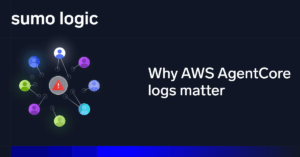As organizations make bigger bets on a digital future, the role of Site Reliability Engineer (SRE) has flourished. As part of our commitment to empowering DevOps engineers to maintain reliable and secure cloud-native apps, we partnered with DevOps Institute to conduct The State of SRE survey. This global survey is designed to discover what mindset and skills modern development and IT organizations need to manage site reliability successfully. Input from the SRE community on practices and thought leadership will also help surface key insights about the state of SRE. Eveline Oehrlich, Chief Research Officer at DevOps Institute, is leading this research effort to uncover meaningful and practical guidance around SRE best practices, outcomes, challenges, and career development. We are proud to be sponsoring this survey with our partner AWS to uncover trends and insights essential for SRE success today and in the future.
Take the State of SRE survey—and help support emergency services for Ukraine
If you are performing SRE work, or work in an adjacent role like software development, networking, or system engineering, we’d love for you to contribute and add your voice to this important research. Your responses will be anonymous and the information you provide is kept confidential by DevOps Institute, with your privacy and data 100% protected. You can look forward to receiving a report of the findings this summer.

For every completed survey, both DevOps Institute and Sumo Logic will donate $1 ($2 total) to the International Committee of the Red Cross for Ukraine.
Take the survey now to receive The State of SRE Report.
The survey is scheduled to close April 20, 2022.
A changing environment
Whether your organization has transformed its computing environment towards the cloud or is operating in a hybrid or legacy environment, the business impact of outages or a loss of service is greater than before. While outages cannot be avoided, response to downtime becomes critical in a digital environment. Organizations are working to reinforce their IT architectures to absorb or adjust to performance impacts and adapt to new levels of demand. Gartner predicts global public cloud spending to grow at a rate of 21.7% to reach $482 billion this year, up from $396 billion. Moreover, IT organizations are embracing new serverless architectures at different levels of adoption.
Increasingly, infrastructure and operations leaders recognize that cloud-based environments require proactive or predictive operational excellence, instead of chaos. That’s where SRE teams come in. While self-healing infrastructure, workload balancing, and other capabilities are helpful, how we solve issues has a significant impact on preventing things in the first place. SRE teams are composed of software development, networking, and system engineers, and take a software engineering approach to automate how issues are resolved.
The rising relevance of SRE
The shift from reactive response to proactive planning and automation for operational excellence has seen the adoption of the evolving role of SRE grow year-over-year. Research from DevOps Institute found that the adoption of SRE grew to 22% in 2021 compared to 15% in the previous year. Instead of only fixing issues, SRE teams aim to spend at least 50% of their time automating incident resolution before issues even arise. With this software engineering approach, incidents become a learning opportunity to create a more resilient ecosystem. Not surprisingly, this paradigm shift is changing how IT operations function and how products are built, developed and released.
Organizations depend on information technology to serve, support, and operate customer interactions. The pandemic accelerated the growth of digital services and products and, subsequently, digital transformation. As a key team to enable and provide technology and services for support across the different value chains of customer service, employee service, sales, operations, marketing, facilities, and more, SRE teams are proving to be the key to success for digital transformation.
Be a part of the solution
If your organization or team has adopted SRE, then we encourage you to please take the 2022 State of SRE survey now, before it closes April 20, 2022. We will not use your responses for any marketing purposes nor share your answers with recruiters, partners, or vendors. Thank you! We are excited to learn more about this important and developing role from global practitioners.



